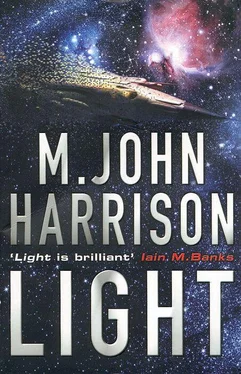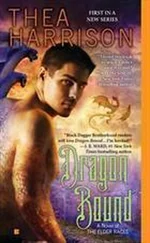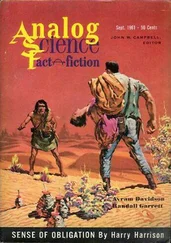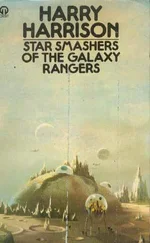TWENTY-TWO
Persistent Entities
It was late. People hurried in and out of the restaurants and cinemas, heads down into the wet and windy night. The trains were still running. Michael Kearney zipped his jacket up. While he walked, he got on his cellphone and made an effort to raise Brian Tate, first at Tate's home, then at the Sony offices in Noho. No one was answering-although at Sony a recording tried to lure him into the maze of automated corporate response-and he soon put the phone away again. Anna caught up with him twice. The first time was at Hammersmith, where he had to stop and buy a ticket.
'You can follow me all you like,' Kearney told her. 'It won't help.'
She gave him a flushed, obstinate look, then pushed her way through the ticket barrier and down to the eastbound platform where-the light of a malfunctioning fluorescent flickering harshly across the upper half of her face-she challenged him: 'What good's your life been? Honestly, Michael: what good has it been?'
Kearney took her by the shoulders as if to shake her; looked at her instead. Began to say something ugly; changed his mind.
'You're being ridiculous. Go home.'
She set her mouth.
'You see? You can't answer. You haven't got an answer.'
'Go home now. I'll be all right.'
'That's what you always said. Isn't it? And look at you. Look how frightened and upset you are.'
Kearney shrugged suddenly.
'I'm not afraid,' he said, and walked off again.
Her disbelieving laugh followed him down the platform. When the train came she stood as far away from him as she could in the crowded carriage. He lost her briefly in the late-night melee at Victoria, but she picked him up again and struggled grimly after him through a crowd of laughing Japanese teenagers. He set his teeth, got off the train two stops early and walked as fast as he could for a mile or so, into the light and activity of West Croydon and out into the suburban streets the other side. Whenever he looked back she had fallen further behind: but she always kept him in sight somehow, and by the time he knocked at Brian Tate's door she had caught him up again. Her hair was slicked down to her scalp, her face was flushed and exasperated; but she blinked the rain out of her eyes and gave him one of those brilliant, strained smiles, as if to say:
'You see?'
Kearney knocked at the door again, and they stood there in an angry truce with their luggage in their hands, waiting for something to happen. Kearney felt a fool.
Brian Tate's house was situated in a quiet, hilly, tree-lined street with a church at one end and a retirement home at the other. It boasted four floors, a short gravelled (driveway between laurels, mock-Tudor timbering over pebbledash. On summer evenings you would be able to watch foxes sniffing about among the licheny apple trees in the garden at the rear. It had the air of a house that had been used mildly and well all its existence. Children had been brought up there, and sent on to the kinds of schools suited to children from houses like these, after which they had made careers in brokerage and then had children of their own. It was a modest, successful house, but there was something gloomy about it now, as if Brian Tale's occupancy had disconcerted it.
When no one answered the door, Anna Kearney put down her bag and went to stand on tiptoe in the flower bed beneath one of the windows.
'Someone's in,' she said. 'Listen.'
Kearney listened, but he couldn't hear anything. He went round to the back of the house and listened there, but all the windows were dark and there was nothing to hear. The rain came down quietly on the garden.
'He's not here.'
Anna shivered. 'Someone's in,' she repeated. 'I saw him looking out at us.'
Kearney rapped on the window.
'See?' Anna called excitedly. 'He moved!'
Kearney got his cellphone out and dialled Tate's number. 'Knock on the door again,' he said, putting the phone to his ear. He got an old-fashioned answer machine and said, 'Brian, if you're there, pick up. I'm outside your house and I need to talk to you.' The tape ran for half a minute then stopped. 'For God's sake Brian, I can see you in there.' Kearney was dialling again when Tate opened the front door and looked out uncertainly. 'It's no good doing that,' he said. 'I keep the phone somewhere else.' He was wearing some kind of heavily insulated silver parka over cargo pants and a T-shirt. A wave of heat came out of the door behind him. The hood of the parka obscured his face, but Kearney could see that it was hollow and tired-looking, in need of a shave. He looked from Kearney to Anna, then back again.
'Do you want to come in?' he said vaguely.
'Brian -' Kearney began.
'Don't go in,' Anna said suddenly. She was still standing in the flower bed under the window.
'You don't have to come with me,' Kearney told her.
She stared at him angrily. 'Oh yes I do.'
Inside, the house was thick with heat and humidity. Tate led them into a small room at the back.
'Could you shut the door after you?' he said. 'Keep the warmth in.'
Kearney looked around.
'Brian, what the fuck are you doing?'
Tate had made the room into a Faraday cage by tacking copper chicken wire to the walls and ceiling. As an extra precaution he had covered the windows with Bacofoil. Nothing electromagnetic could get into him from outside that room; nothing could get out. No one could know what he was doing, if he was doing anything. Boxes of tacks, rolls of chicken wire and Bacofoil cartons lay everywhere. The central heating was turned up full. Two standalone heaters running off bottled gas roared away in the middle of the room next to a Formica kitchen table and chair. On the table Tate had racked six G4 servers connected in parallel, a keyboard, a hooded monitor, some peripherals. He also had an electric kettle, instant coffee, plastic cups. Takeaway food cartons littered the floor. The room stank. It was immeasurably bleak and obsessive in there.
'Beth left,' Tate explained. He shivered and put his hands out to one of the heaters. His face was hard to see inside the hood of the parka. 'She went back to Davis. She took the kids.'
'I'm sorry to hear that,' Kearney said.
'I bet you are,' Tate said. 'I bet you are.' He raised his voice suddenly. 'Look,' he said, 'what do you want? I keep the phone in another room, you know? I've got work to do here.'
Meanwhile, Anna Kearney was staring around as if she couldn't believe any of it. Every so often her eyes went across Tate with the calm contempt of one neurotic for another, and she shook her head. 'What's that?' she said suddenly. The white cat had emerged cautiously from under the desk. It looked up at Michael Kearney and ran off a little way. Then it stretched itself with a kind of careful self-regard and walked up and down purring, its tail stuck in the air. It seemed to be enjoying the heat. Anna knelt down and offered her hand. 'Hello, baby,' she said. 'Hello, little baby.' The cat ignored her, leapt lightly up on to the hardware, and from there on to Tate's shoulder. It looked thinner than ever, its head more than ever like the blade of an axe, ears transparent, fur a corona of light.
'I'm living in just the one room,' Tate said.
'What's happened, Brian?' Kearney said gently. 'I thought you said it was a glitch.'
Tate held his hands out from his sides.
'I was wrong.'
Rooting about in the tangle of USB cable, stacked peripherals and old coffee cups that covered the desk, he came up with a 100Gb pocket drive in a polished titanium shell. This he offered to Kearney, who weighed it cautiously in his hand.
'What's this?'
'The results of the last run. It was decoherence-free for a whole minute. We had q-bits that survived a whole fucking minute before interference set in. That's like a million years down there. That's like the indeterminacy principle is suspended. 'He gave a strained laugh. 'Is a million years long enough for us, do you think? Will that do? But then… I don't know what happened then. The fractals… '
Читать дальше












